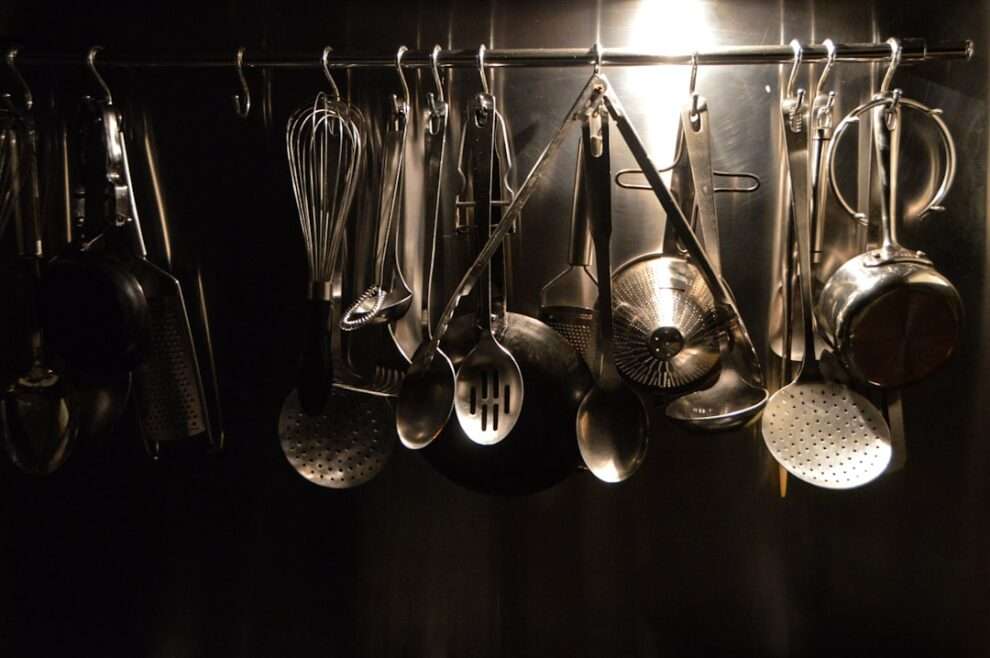Julia Child is a name that is synonymous with American cuisine. Her impact on the culinary world cannot be overstated, as she revolutionized the way Americans cook and eat. With her infectious enthusiasm and passion for food, Julia Child brought French cooking techniques to the American home cook, making them accessible and approachable. Her television show, “The French Chef,” and her iconic cookbook, “Mastering the Art of French Cooking,” have become staples in kitchens across the country.
Cooking skills are not just important for professional chefs; they are essential for everyday life. Being able to prepare a delicious and nutritious meal is a valuable skill that can save you money, improve your health, and bring joy to your life. Whether you are cooking for yourself, your family, or entertaining guests, having a solid foundation of cooking skills can make all the difference in the outcome of your meals.
Julia Child’s Impact on American Cuisine
Julia Child’s career spanned over five decades, during which she introduced Americans to the joys of French cooking. Her television show, “The French Chef,” first aired in 1963 and quickly became a hit. With her warm and engaging personality, Julia made French cooking techniques accessible to the average American home cook. She demystified complex recipes and showed viewers that anyone could create delicious meals in their own kitchen.
Some of Julia Child’s most popular recipes include Coq au Vin, Beef Bourguignon, and Quiche Lorraine. These dishes became staples in American households thanks to Julia’s clear instructions and step-by-step demonstrations. She also introduced Americans to classic French techniques such as sautéing, braising, and making sauces from scratch. Julia’s influence on American cuisine cannot be overstated; she paved the way for future generations of chefs and home cooks to explore new flavors and techniques.
The Importance of Technique in Cooking
Technique is the foundation of good cooking. It can make or break a dish, turning a simple meal into something extraordinary. Understanding and mastering cooking techniques allows you to have more control over the outcome of your dishes and opens up a world of possibilities in the kitchen.
One example of a technique that can elevate a dish is properly searing meat. Searing creates a flavorful crust on the outside of the meat, while keeping the inside juicy and tender. Another technique that can make a difference is properly emulsifying a vinaigrette. By slowly adding oil to vinegar while whisking vigorously, you can create a smooth and creamy dressing that clings to your salad greens.
By taking the time to learn and practice different cooking techniques, you can elevate your cooking to new heights. Whether it’s learning how to properly chop an onion, deglaze a pan, or make a perfect omelette, mastering these techniques will give you the confidence to tackle any recipe.
The Joy of Experimentation in the Kitchen
| Experimentation Metric | Description |
|---|---|
| Number of new recipes tried | The total number of recipes tried that were previously unknown to the cook. |
| Success rate | The percentage of new recipes that turned out well and were enjoyed by those who ate them. |
| Ingredient substitutions | The number of times an ingredient was substituted for another in a recipe, and whether or not it worked well. |
| Flavor combinations | The number of times different flavors were combined in a dish, and whether or not the combination was successful. |
| Texture experimentation | The number of times different textures were incorporated into a dish, and whether or not the texture added to or detracted from the overall dish. |
One of the joys of cooking is the ability to experiment with different ingredients and techniques. Trying new things in the kitchen can lead to exciting discoveries and unexpected flavor combinations. Don’t be afraid to step out of your comfort zone and try something new.
Experimenting in the kitchen allows you to develop your own unique style and taste preferences. You may discover that you have a knack for creating spicy dishes or that you love experimenting with different herbs and spices. The possibilities are endless, and the only way to find out what works for you is by trying new things.
Not every experiment will be a success, but that’s part of the fun. Even if a dish doesn’t turn out exactly as planned, you can learn from your mistakes and make adjustments for next time. Cooking is all about learning and growing, so embrace the joy of experimentation and let your creativity shine in the kitchen.
The Role of Confidence in Mastering Cooking Skills
Confidence plays a crucial role in mastering cooking skills. When you believe in your abilities and trust your instincts, you are more likely to take risks and try new things in the kitchen. Confidence allows you to step outside of your comfort zone and push the boundaries of what you think you can achieve.
Building confidence in the kitchen takes time and practice. Start by mastering a few basic recipes that you feel comfortable with, and then gradually challenge yourself with more complex dishes. As you become more familiar with different techniques and ingredients, your confidence will grow.
One way to build confidence is by seeking out feedback from others. Cook for friends and family and ask for their honest opinions. Their positive feedback will boost your confidence, while their constructive criticism will help you improve.
Remember that mistakes are a natural part of the learning process. Don’t be discouraged if a dish doesn’t turn out as planned; instead, use it as an opportunity to learn and grow. With time and practice, your confidence in the kitchen will soar.
The Art of Balancing Flavors in Recipes

Balancing flavors is an essential skill in cooking. It involves combining different tastes, such as sweet, salty, sour, and bitter, to create a harmonious and well-rounded dish. Understanding how flavors work together can take your cooking to the next level.
One way to balance flavors is by using contrasting ingredients. For example, if a dish is too sweet, adding something salty or acidic can help balance it out. Similarly, if a dish is too spicy, adding something creamy or sweet can help mellow the heat.
Another way to balance flavors is by using herbs and spices. Experiment with different combinations to find what works for you. For example, adding fresh basil to a tomato sauce can enhance the flavor, while adding cinnamon to a chocolate dessert can add depth and complexity.
Don’t be afraid to taste as you go and make adjustments as needed. Developing a palate for flavors takes time and practice, but with patience and experimentation, you can become a master at balancing flavors in your recipes.
The Significance of Fresh Ingredients in Cooking
Fresh ingredients are the building blocks of delicious meals. They have a vibrant flavor and texture that cannot be replicated by their processed counterparts. Using fresh ingredients can elevate your dishes and make them truly memorable.
When selecting fresh ingredients, look for ones that are in season and locally sourced. These ingredients will be at their peak flavor and will provide the best results in your cooking. Visit farmers markets or join a community-supported agriculture (CSA) program to access the freshest produce available.
In addition to flavor, fresh ingredients also offer nutritional benefits. They are packed with vitamins, minerals, and antioxidants that are essential for good health. By incorporating more fresh ingredients into your cooking, you can improve your overall well-being.
When using fresh ingredients, it’s important to handle them with care. Store them properly to maintain their freshness and use them as soon as possible to ensure the best flavor. By prioritizing fresh ingredients in your cooking, you can create meals that are not only delicious but also nourishing for your body.
The Art of Presentation: Making Your Dishes Look Beautiful
Presentation is an often overlooked aspect of cooking, but it plays a crucial role in how we perceive food. A beautifully presented dish is not only visually appealing but also enhances the overall dining experience.
There are several ways to make your dishes look beautiful. Start by considering the colors and textures of the ingredients you are using. Aim for a variety of colors on the plate to create visual interest. Use different textures, such as crispy, creamy, and crunchy, to add dimension to your dish.
Pay attention to the arrangement of the food on the plate. Use different shapes and sizes to create balance and symmetry. Garnish with fresh herbs or edible flowers to add a pop of color and freshness.
Remember that presentation is not just about aesthetics; it also affects how we perceive the taste of food. A beautifully presented dish can make even the simplest meal feel special and elevate the dining experience.
The Benefits of Cooking from Scratch
Cooking from scratch is a rewarding and fulfilling experience. It allows you to have complete control over the ingredients you use and the flavors you create. By cooking from scratch, you can avoid processed foods and additives, which can have negative effects on your health.
One of the benefits of cooking from scratch is that it allows you to customize your meals to suit your taste preferences and dietary needs. You can adjust the amount of salt, sugar, and fat in your recipes to make them healthier. You can also experiment with different herbs, spices, and seasonings to create unique flavor combinations.
Cooking from scratch also saves you money in the long run. Pre-packaged and convenience foods are often more expensive than buying ingredients and cooking them yourself. By cooking from scratch, you can stretch your food budget and still enjoy delicious and nutritious meals.
Finally, cooking from scratch is a creative outlet that allows you to express yourself in the kitchen. It gives you the opportunity to experiment with different ingredients and techniques, and to develop your own unique style. The satisfaction of creating something from scratch is unparalleled and will leave you feeling accomplished and proud.
The Art of Pairing Wine with Food
Pairing wine with food is an art form that can enhance the flavors of both the dish and the wine. When done correctly, the right wine can elevate a meal and create a harmonious dining experience.
When pairing wine with food, consider the flavors, textures, and intensity of both the dish and the wine. A general rule of thumb is to pair lighter wines with lighter dishes and heavier wines with richer dishes. For example, a light white wine pairs well with seafood or salads, while a bold red wine pairs well with grilled meats or hearty stews.
Another consideration when pairing wine with food is the acidity of the wine. Acidic wines, such as Sauvignon Blanc or Pinot Noir, pair well with acidic dishes, such as tomato-based sauces or citrusy salads. The acidity in the wine helps to cut through the richness of the dish and cleanse the palate.
Experimenting with different wine and food pairings can be a fun and educational experience. Host a wine and food pairing dinner party with friends and try different combinations to see what works best for you. With time and practice, you will develop a palate for wine and be able to confidently pair it with your favorite dishes.
The Legacy of Julia Child: Inspiring a New Generation of Cooks
Julia Child’s impact on American cuisine is undeniable. She brought French cooking techniques to the American home cook and made them accessible and approachable. Her infectious enthusiasm and passion for food inspired a new generation of cooks to explore new flavors and techniques.
Julia’s legacy lives on in the countless chefs, home cooks, and food enthusiasts who continue to be inspired by her. Her television show, “The French Chef,” and her iconic cookbook, “Mastering the Art of French Cooking,” have become staples in kitchens across the country.
Julia’s message was simple: anyone can cook. She believed that with the right techniques, anyone could create delicious meals in their own kitchen. Her emphasis on technique, confidence, and experimentation continues to resonate with cooks today.
Cooking skills are an essential part of everyday life. Whether you are cooking for yourself, your family, or entertaining guests, having a solid foundation of cooking skills can make all the difference in the outcome of your meals.
Julia Child’s impact on American cuisine cannot be overstated. She brought French cooking techniques to the American home cook and made them accessible and approachable. Her emphasis on technique, confidence, and experimentation continues to inspire cooks today.
By mastering cooking techniques, experimenting with new ingredients and flavors, and developing your own unique style, you can elevate your cooking to new heights. Remember to have confidence in the kitchen, embrace the joy of experimentation, and always strive to improve.
Cooking is a lifelong journey of learning and discovery. So, continue to develop your cooking skills, try new things, and most importantly, have fun in the kitchen. Happy cooking!
If you’re interested in learning more about the fascinating life of Julia Child, you might also enjoy reading this article on new communication tools that promise to improve care and reduce costs. This insightful piece explores how advancements in technology are revolutionizing the healthcare industry, much like how Julia Child revolutionized the culinary world with her passion for French cuisine. Discover how these innovative tools are enhancing patient care and streamlining processes by clicking here.

















Add Comment